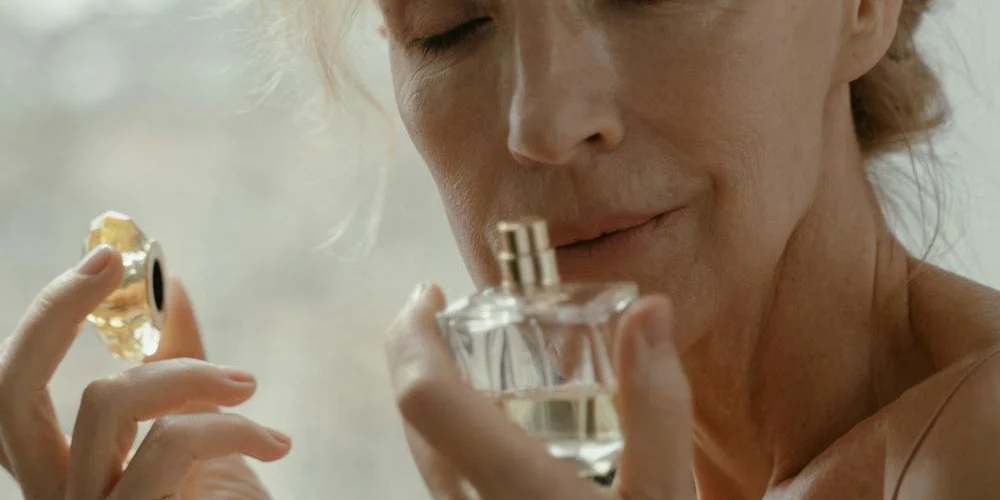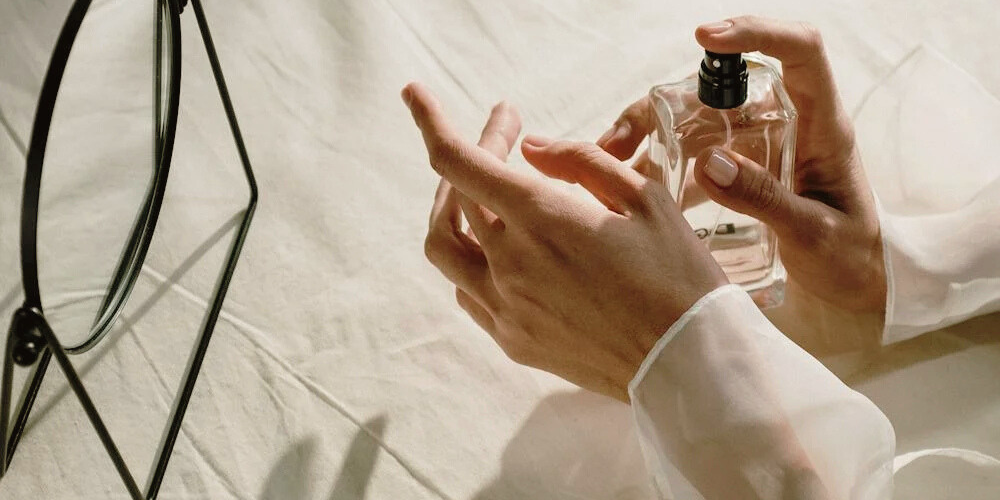Pheromone Perfumes: The Science, the Scents, and the Mystery — Do They Really Work?

Pheromone perfumes have long been a point of intrigue, promising to tap into our primal instincts and make us irresistible to others. But before you spritz on a pheromone-infused fragrance and start expecting to turn heads, let’s take a deeper dive into the science behind it all — complete with a dash of mystery and a sprinkle of skepticism.
What Are Pheromones, Anyway?
Pheromones are chemicals that are naturally produced by the body to influence the behaviour of others. They’re part of the animal kingdom’s very own social network, affecting everything from mating to marking territory. While we typically think of pheromones as a tool for sexual attraction, they actually play a variety of roles, influencing moods, bonding, and even social interactions.
How Do Pheromones Work in Humans?
While the research on pheromones dates back to the 1950s — primarily in insects — our understanding of how these chemicals function in humans is far murkier. In animals, pheromones are detected by the vomeronasal organ (VNO) located in the nose, but scientists have yet to find definitive evidence that humans have a VNO — or that our pheromones behave the same way. Some researchers still believe that pheromones exist in humans and can subtly influence behaviour, but there’s no conclusive proof (yet).
So, Why Add Pheromones to Perfume?
In the world of perfume, synthetic pheromones are often added to fragrances with the idea that they can trigger subconscious attraction. Sweat, urine, and even breast milk have been cited as natural sources of these pheromones. If these chemicals do exist and have the power to influence attraction, could a perfume laced with synthetic pheromones do the trick? Some studies hint that compounds like androstadienone (found in higher concentrations in men’s sweat) might have mood-boosting effects, potentially enhancing focus and even increasing sexual satisfaction in women. However, the jury is still out on whether this actually leads to attraction in the way some perfume ads would have us believe.

Do Pheromone Perfumes Actually Work?
Now, the burning question: do these perfumes actually work? Well, maybe, but not in the magical way you might think. Here’s the deal:
- Finding Actual Pheromones: Not all pheromone perfumes actually contain detectable pheromones. There’s no standardized protocol for manufacturing them, so it’s a bit of a gamble when you’re buying into these claims. Some products may simply be missing the magic ingredient altogether.
- Placebo Effect: Many users swear by pheromone perfumes, claiming they attract attention and boost confidence. But could it be that the power is in the wearer’s self-assurance, rather than the perfume itself? The placebo effect could play a significant role here — spraying on a scent that you believe is attracting others could boost your confidence, which in turn, could make you more attractive (no pheromones required).
- Finding the Right Match: Not all pheromones are created equal, and not everyone responds to the same ones. So, while a pheromone perfume might enhance your appeal, you still need the right chemistry with the person you’re trying to attract. A fragrance can’t guarantee the perfect match — no matter how “primal” it may be.
Natural vs. Synthetic Pheromones: What’s In Your Bottle?
Most pheromone perfumes contain synthetic versions of natural pheromones, such as androstadienone (linked to male attractiveness) and copulins (associated with female attraction). While these synthetic pheromones might mimic the real thing, they don’t always come from natural sources — so don’t expect to catch a whiff of someone’s sweat in your bottle.
Do Pheromone-Enhanced Perfumes Change Your Scent?
Adding pheromones to a perfume does alter its scent profile. Since each person’s olfactory senses are unique, a pheromone-enhanced fragrance might smell differently on everyone, potentially affecting how others perceive you. But since manufacturers haven’t fully cracked the code on how human scent preferences work, it’s hard to know exactly how these perfumes will perform. There’s potential, for sure, but more research is needed to get a clearer picture.

Pheromone Perfumes vs. Regular Perfumes
While pheromone perfumes are marketed as having a special attraction factor, there’s no scientific evidence to suggest they work any differently from regular perfumes — except for the added pheromones. The truth is, scent preferences and attraction are far more complex than just a chemical reaction. When it comes to fragrance, choosing a scent that makes you feel confident and happy might have a more significant impact on attraction than any pheromone could.
So, Do Pheromone Perfumes Live Up to the Hype?
In short, the science isn’t quite there yet to support the idea that pheromone perfumes work in the way they’re marketed. While some studies suggest there could be a link between certain pheromones and attraction, much more research is needed to understand how — or even if — pheromones truly influence human behaviour. Until then, it seems the power of attraction may still lie more in your scent preferences and the confidence you exude than in any bottle of synthetic pheromones.
Bottom line: the science is still a little hazy, but if you like the fragrance and feel great wearing it, then who’s to say it’s not working its magic?
Now that you know more about pheromone perfumes, want to explore clean perfumes that will have your senses tingling? Download the Think Dirty App.
Disclosure: We are a professional review and product rating website and mobile app that receives compensation from the companies whose products we review and rate. We are independently owned and the opinions expressed here are our own interpretations of a trusted source. This blog post may contain affiliate links.
Pheromone Perfumes: The Science, the Scents, and the Mystery — Do They Really Work? was originally published in Think Dirty on Medium, where people are continuing the conversation by highlighting and responding to this story.